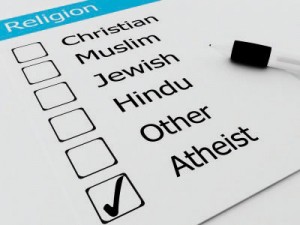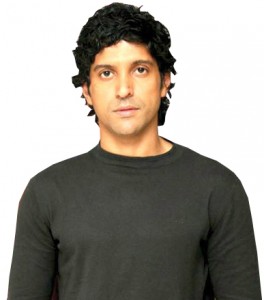In the birthplace of four major religions and home of many more, Jai Vipra finds out what it is like for young people who are good without God
The year is 500 BC. India is Vedic, but India is also Buddhist and Jain. And as this country has always had space to accommodate all kinds of diversity, India is also atheist – the Charavaka movement (which is mentioned in every article about Indian atheism ever) is alive.
 ATHEISTS DON’T COUNT
ATHEISTS DON’T COUNT
The year is 2013, and Jatin Chaudhary is annoyed. Jatin is an engineering student from Delhi and finds it very odd that the Census does not have an option to check atheism. “We’re just lumped in with ‘Other’,” he says, “This leaves analysts with no reliable statistics, and atheists with no way to record their beliefs. So what if we’re a minority? Indeed, who even knows how much of a minority we really are?”
This summarises what it is generally like for an atheist in urban India – while it does not interfere with your daily life, there is an atmosphere of condescension or even outright non-acknowledgement.
“I haven’t been horribly castigated for my atheism yet,” says Ravikant Rai, a 23 year old from Mumbai, “My parents and close friends do not have a problem with it. But some acquaintances ask me, rather seriously, if I believe I am above God or angry with God.” Neehar Kulkarni also mentions that his parents laughed it off when he declared his atheism.
Akshay Jadye, another young professional from Mumbai, has a somewhat different story. “Once people find out about my beliefs, they lose all respect for me and think I’m a high-headed rebel who has given up God because it’s cool. They even become aggressive and treat me like an outcast. This is why many people are not openly atheist.”
 NIRMUKTA: TOWARDS F REE THINKING
NIRMUKTA: TOWARDS F REE THINKING
Akshay believes that the first and foremost religion anyone should follow is humanity. This sentiment has been promoted by Nirmukta since 2008. Nirmukta, in their own words, is an organisation dedicated to the promotion of science, freethought and secular humanism in India. A post on one of Nirmukta’s regional Facebook groups implores members to stay away from sexism, casteism and racism – an indicator of the group’s willingness to go beyond a simple rejection of the idea of God to being ‘freethinkers’ – people who attempt to be humane and nondiscriminatory while understanding their privilege.
ATHEIST MOVEMENTS IN INDIA
Indian atheists also do not have many popular Indian texts to look at, apart from Bhagat Singh’s Why I Am An Atheist. Most of the people I spoke to, mentioned Richard Dawkins and Christopher Hitchens, enormous influences in the west. Anway Pramanik, a student from Bangalore, has a possible answer, “There is lack of room to think beyond religious boundaries here, unless you discover Dawkins or Hitchens by chance,” he says. Anway agrees that the Bangalore ‘scene’, with respect to atheism, is quite laid back. “There is indoctrination, but no persecution per se,” he says.
This is probably because in the south, several atheist movements (the Self Respect movement, for example) have been popular historically. Even today, M Karunanidhi, A.K. Antony, P. Chidambaram and Siddaramaiah (Karanataka’s Chief Minister) have been identified as atheists.
 LIFE WITHOUT A GOD
LIFE WITHOUT A GOD
Priye Mehta, who studies at Indraprastha University, says, “Few realise that you can keep your cultural background while rejecting the idea of a divine being. And while I cannot say I agree with Veer Savarkar, I keep my culture.” Priye finds it awkward that people blame everything on God.
“I see it as a way of avoiding personal responsibility. Personally, I do not need a God or the fear of retribution to tell right from wrong,” he says. It is famously said that whatever you may say about India, the opposite is also true. This peculiar characteristic of India makes the case of atheism very interesting. So while Sanal Edamaruku, president of the Indian Rationalist Association, was almost arrested for disproving a miracle, Jaidev Ramakrishna, a computer engineering student from Mumbai, says he realises how dangerous it is to be an atheist in many parts of the world and thinks he is lucky to have been born in India.
Lalit Chawla, the Nirmukta representative I spoke with, sums it up very well, “Being an atheist in India is like having a mohawk – people think it’s a phase. Then there is the dangerous side, where casteism, misogyny and submission to authority are all sanctified by religions, which makes opposition to them very difficult.”
Leaders from diverse political backgrounds have been identified as atheists. While Jawaharlal Nehru and Jayaprakash Narayan are prominent examples, what is perhaps more surprising is that Veer Savarkar, who is generally credited with the popularisation of Hindutva, was also an atheist.
Volume 3 Issue 2


























